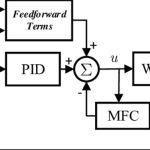According to research reports, more than 75% of major manufacturers in the world are applying AI to their production lines to improve efficiency and reduce costs. This emphasizes the indispensable role of AI in promoting the sustainable development of the automation industry. Despite bringing many great benefits, AI also faces challenges such as cybersecurity risks or implementation processes. This article will help you better understand the classification, applications and outstanding benefits that AI brings in industrial fields.
What is Artificial Intelligence (AI)?
Artificial Intelligence (AI) is already reshaping the way we work and operate industrial systems. AI is defined as the ability of machines or software to perform tasks that typically require human intelligence, such as learning, reasoning, analyzing, and making decisions. In the automation industry, AI helps optimize processes, predict technical failures, and increase operational efficiency, making it one of the most important advanced technologies in the era of Industry 4.0.
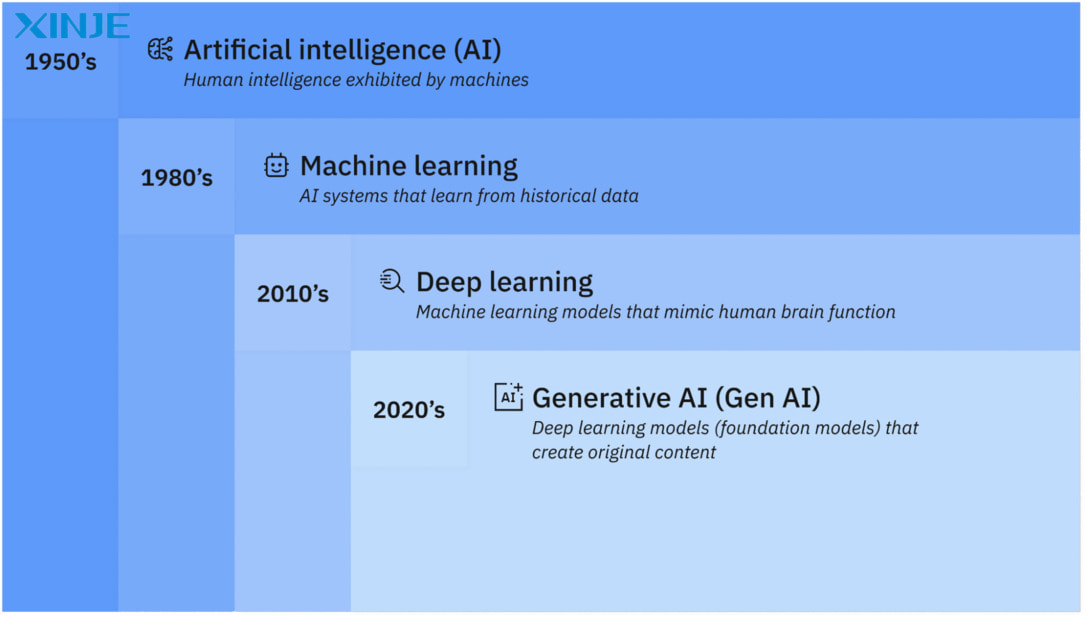

How many types of Artificial Intelligence are there?
Based on its capabilities and scope of operation, artificial intelligence (AI) is divided into 3 main types: Narrow AI, Strong AI, and Super AI.
- Narrow AI: This is the most popular type of AI today, it is designed to perform a specific task in a limited field. For example: Virtual assistant Siri, Google Assistant, Alexa.
- Strong AI: Also known as General AI, this is the type of AI that is capable of performing any intellectual task that humans can do and has similar cognition and understanding to humans.
- Super AI: This is the highest stage of artificial intelligence development, far beyond human intellectual capabilities.
| Narrow AI | Strong AI | Super AI | |
| Ability | Can only do one specific task | Can perform many intellectual tasks like humans | Exceeds human intelligence and ability |
| Cognition | Noncognitive | Cognitive | Cognitive and emotional |
| Usage status | Widely developed | Under research | Only theoretical |
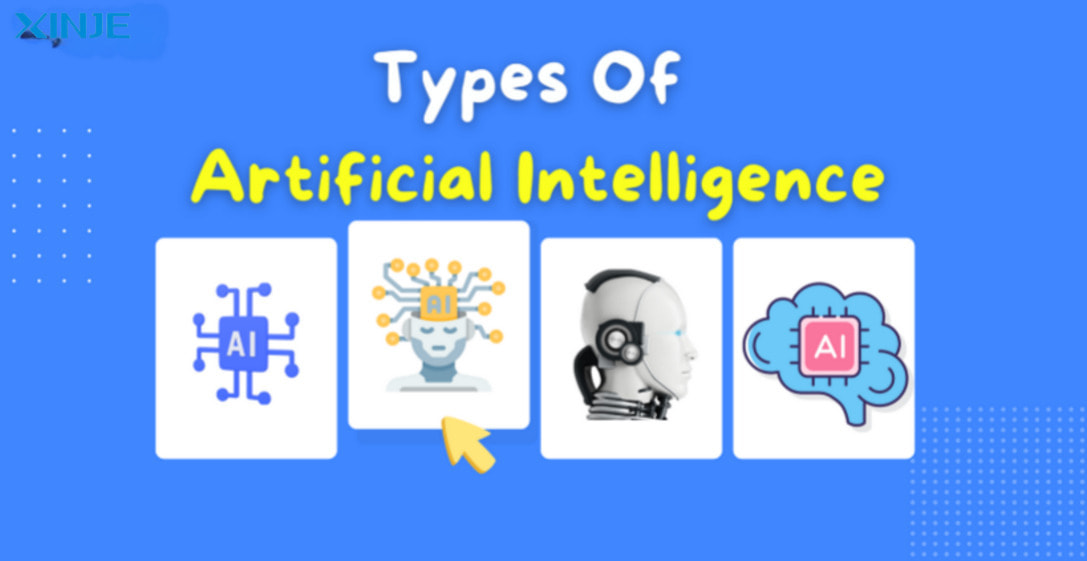

Why should artificial intelligence technology be applied to the production process?
In the context of increasingly fierce global competition, the application of AI is not only an advantage but also a decisive factor for the survival and sustainable development of enterprises. Here are 5 reasons why enterprises should use AI technology in the production line:
- Meeting the requirements of the 4.0 Industrial Revolution: AI is the core foundation of the 4.0 Industrial Revolution, where every system is connected, intelligent and optimized. The integration of AI with other technologies such as IoT, Big Data, and cloud computing helps build smart factories, improving operational efficiency.
- Optimizing the production process: AI technology is capable of operating continuously 24/7, ensuring that the production line operates accurately and continuously. AI is also capable of analyzing real-time data from the production line to automatically adjust parameters such as temperature, speed, or pressure, ensuring the highest performance.
- Improving product quality: AI uses computer vision to detect the smallest errors on products that the naked eye cannot detect. In addition, AI also ensures consistency in each product, minimizing quality deviations.
- Cost savings: AI helps automate repetitive tasks, freeing up human resources to focus on more creative and strategic tasks. At the same time, AI supports optimizing the use of raw materials, energy, and equipment, reducing operating costs.
- Ensuring labor safety: In hazardous production environments, AI integrated into robots or automation systems can perform dangerous tasks for humans such as handling toxic chemicals, and working in high temperature or pressure conditions.
- Increased competitiveness: In the context of increasingly fierce global competition, the application of AI helps businesses automate complex processes, improve product quality and reduce production costs. This creates a great competitive advantage over competitors in the market.
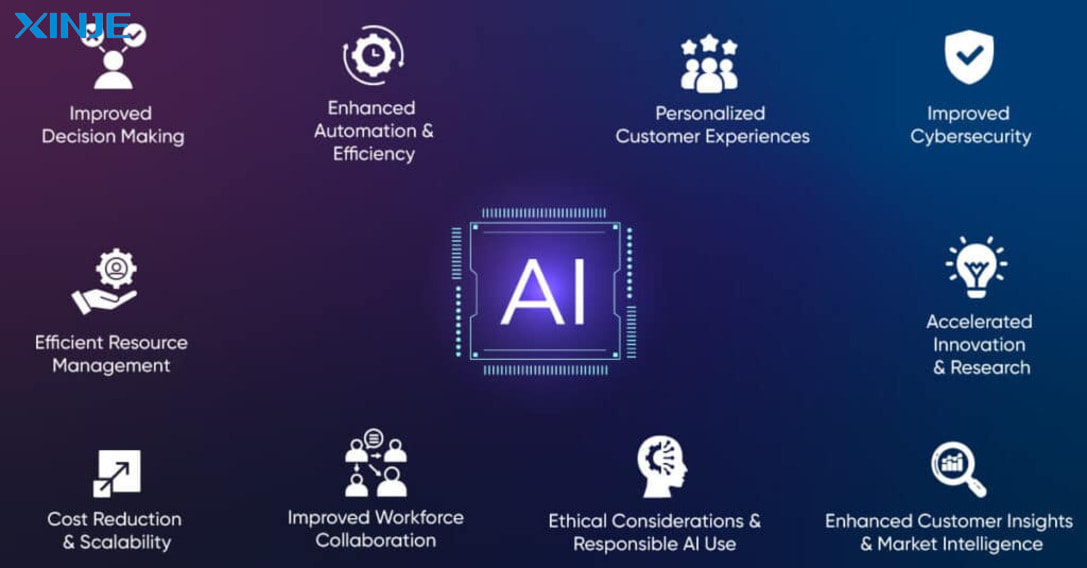

What are the challenges of using Artificial Intelligence?
- Difficult to implement: Integrating AI into existing automation systems requires high expertise and long implementation times. Businesses without a team of AI experts will have difficulty operating and optimizing the system.
- Cybersecurity risks: AI and automation systems constantly collect and analyze data. This can easily lead to the risk of cyber attacks or theft of important information.
- Impact on workers: AI replaces repetitive or dangerous jobs, leading to unemployment among a segment of the workforce without high specialized skills.
- Data dependence: AI requires large, high-quality data to train and operate effectively. Incomplete, inaccurate, or biased data can reduce the performance of AI systems.
The application of AI in industrial automation brings many opportunities but also comes with many challenges and risks. Businesses need to prepare clear strategies, invest in staff training, and build good data management and security systems to maximize the potential of AI while minimizing related risks.
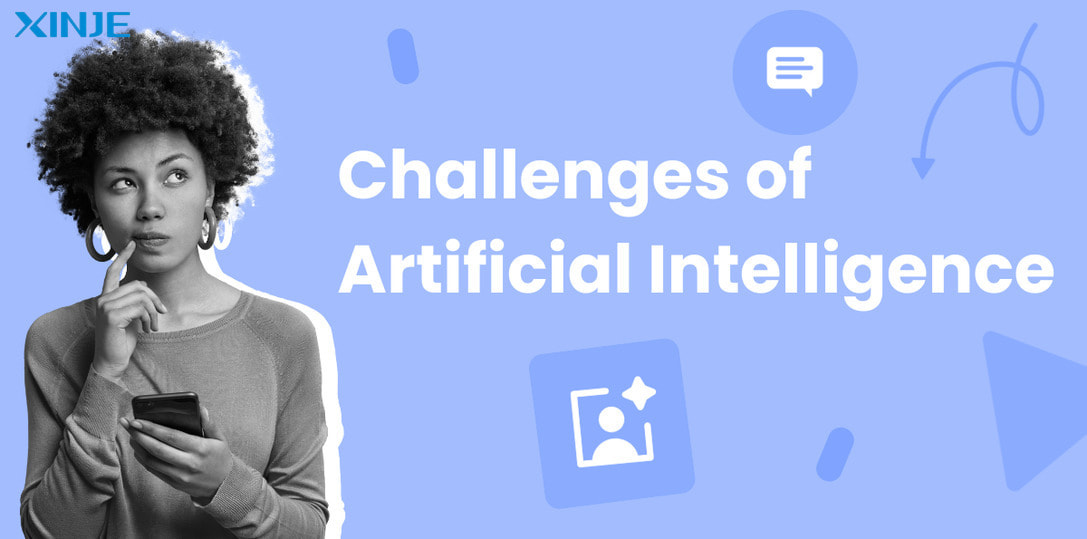

In which industries is Artificial Intelligence (AI) commonly applied?
Healthcare
- Diagnostic imaging: AI analyzes X-rays, MRIs, CT scans to detect diseases such as cancer, cardiovascular disease or tissue damage, often with greater accuracy than doctors.
- Robots for surgery: Surgical robots such as Da Vinci, controlled by AI, help perform complex surgeries with absolute precision.
- Personalized healthcare applications: AI is integrated into smart wearable devices (smartwatches) to monitor heart rate, sleep, and activity levels, and provide timely health advice.
Transportation
- Self-driving cars: AI technology in self-driving cars (like Tesla) allows for the recognition of obstacles, traffic signs, and automatic navigation decisions.
- Optimizing logistics transportation: AI determines the shortest and most efficient routes, reducing delivery times and costs. For example, companies like FedEx or DHL use AI to manage delivery routes.
Manufacturing
- Industrial robots: AI-powered robotic arms can perform tasks like welding, cutting, or assembling with greater precision than humans.
- Predictive maintenance: AI analyzes historical data to predict when equipment needs maintenance, reducing downtime and optimizing costs.
Education
- Education chatbots: AI helps students answer questions, suggest study materials, and help manage study time effectively.
- Platforms like Khan Academy or Duolingo use AI to tailor lessons to each student’s ability and learning speed.
AI has been present in almost every field, from manufacturing, healthcare, education, to agriculture and entertainment. With continuous advancements, artificial intelligence continues to open up huge potential to improve efficiency, productivity, and experiences in life and work.
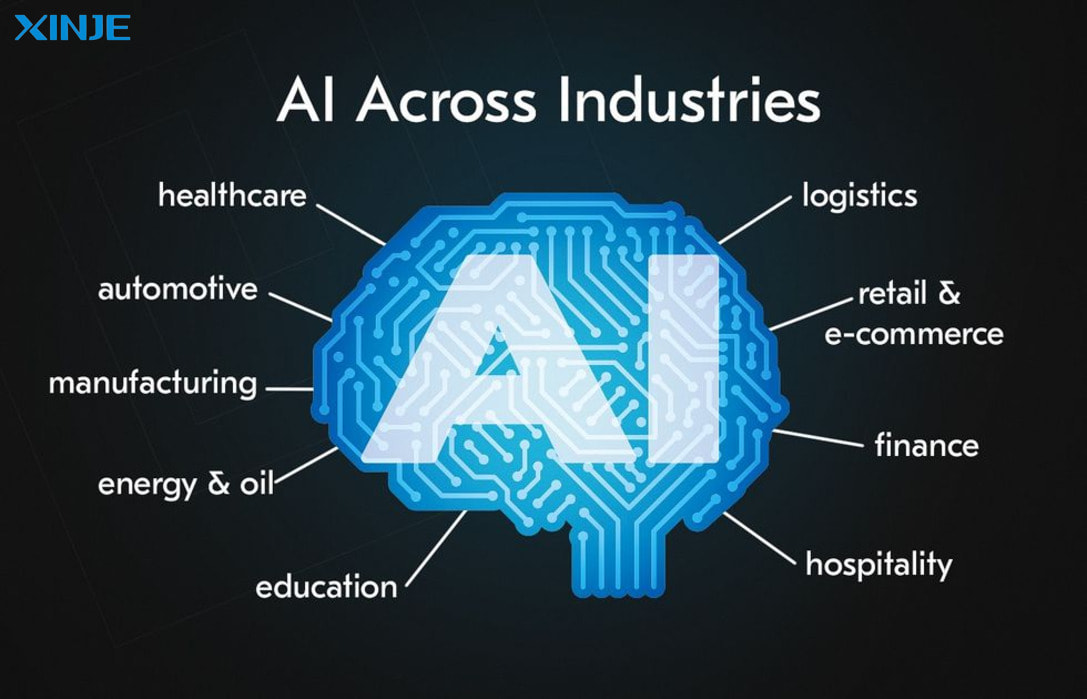

Conclusion
AI is not just a technology today, but also the key to helping promote the automation industry to develop rapidly. From predictive maintenance to quality inspection, AI has proven its value in optimizing production processes, improving product quality, and enhancing the competitiveness of businesses.
Thus, in the context of the increasingly developing Industrial Revolution 4.0, investing in AI is a must for businesses to survive and develop. However, to achieve maximum efficiency, it is necessary to have a reasonable implementation strategy, combined with human resource training and solving challenges related to costs as well as cybersecurity risks.





